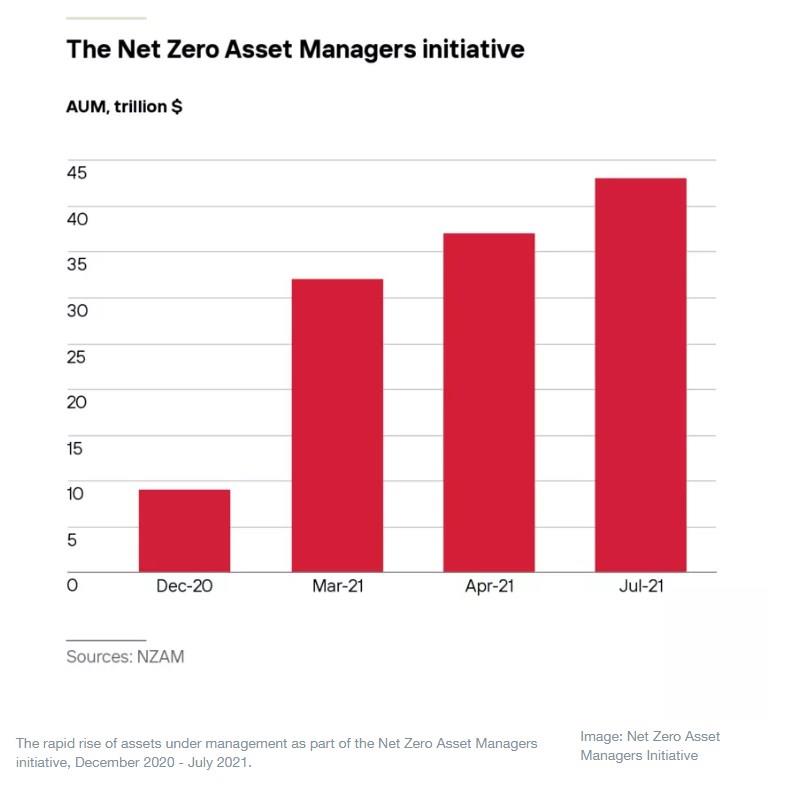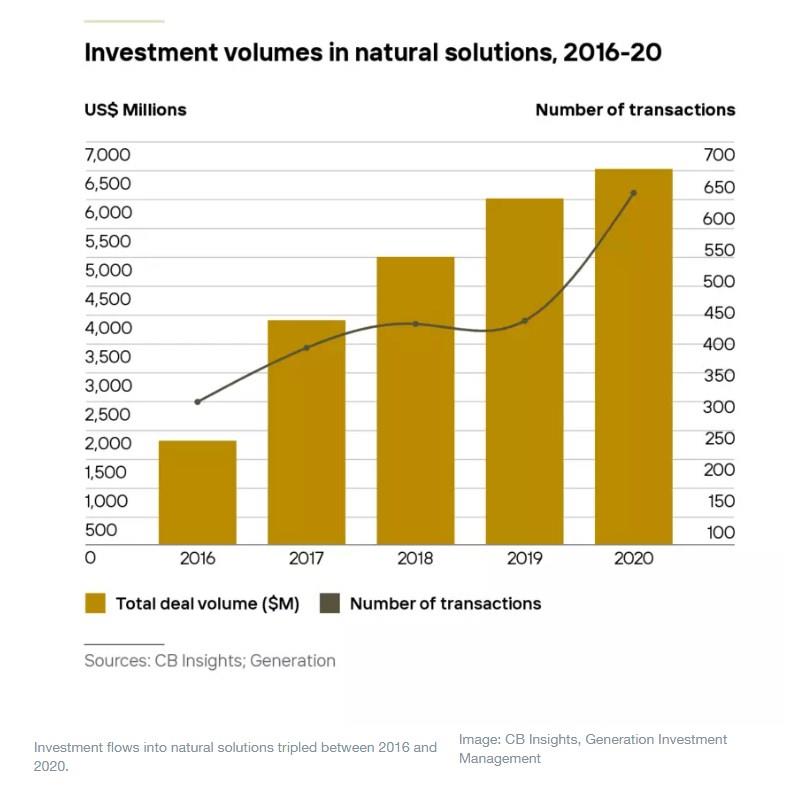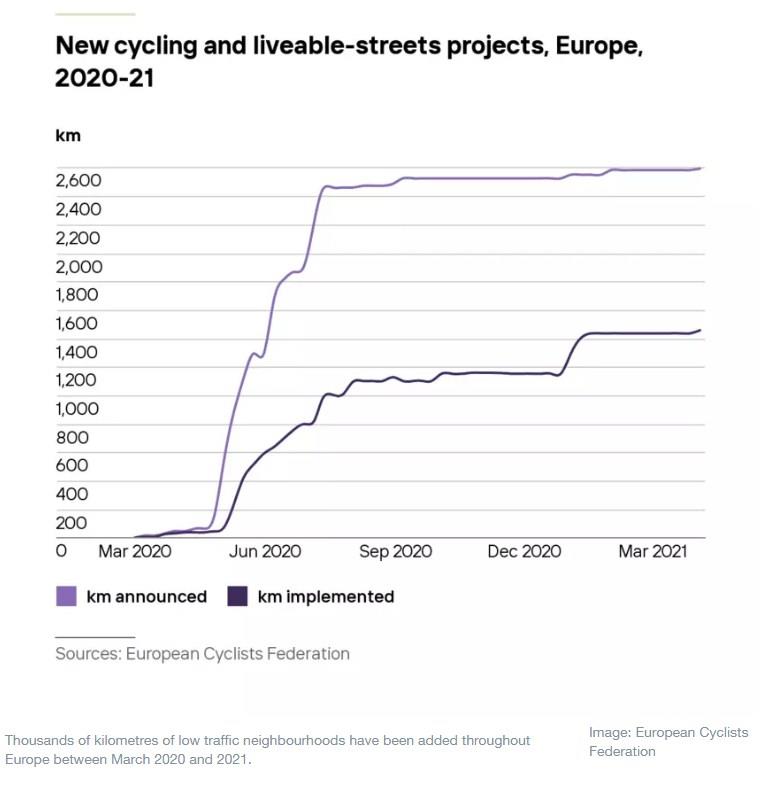by Felix Preston*
The concept of “tipping points” is commonly used to describe the threat of systemic risks. It is about systems moving into a new state and represents change at a critical point that will qualitatively alter the future fate of a complex system.
The past year has seen a series of positive tipping points in the shift to sustainability – from the mainstreaming of net zero to action on social justice and equity, to the rise of clean technologies and natural solutions. These tipping points come at a critical moment, with COP26 just four months away and a narrow path ahead to keep temperatures within 1.5 degrees and regenerate the natural world.
Here are the 4 most important tipping points Generation Investment Management has observed in its Sustainability Trends Report 2021:
1) Progress to net zero
Love it or loathe it, the concept of net zero is here to stay. More than three quarters of global GDP is now covered by national commitments to reach net-zero emissions by mid-century, with the addition of China and the US this year and many smaller economies too.
The UK is now halfway to net zero, measured against 1990 levels. There are also many companies taking deep, near-term action on emissions. In fact, we think their progress on decarbonisation is an undervalued quality (we call this the Time Value of Carbon).
More specifically, net zero has become a de facto standard for the finance and investment sector. In recent months, new net-zero initiatives have been established by asset managers, banks and insurers. The chart below shows the rapid rise of assets under management (AUM) as part of the Net Zero Asset Managers initiative, which is now almost half of global AUM.

2) A big year for nature
Scientists have sounded the alarm on degradation of the natural world, species loss and the risk of ecosystem collapse for years. A series of global summits and initiatives aim to respond. For example, draft goals for biodiversity were published in July, including a proposal to protect 30% of oceans and land in 2030.
Biodiversity and natural solutions for sustainability have also reached the agenda for businesses and investors this year. We see rising business activity in this area. Our research (see chart below) shows investment flows into natural solutions have tripled since 2016, reinforcing the importance of this issue to sustainable investing.

3) The growth of sustainable energy and mobility
Major electricity systems are reaching a critical point in the transition to zero-carbon energy. At the global level, power production from low-carbon sources (renewables plus nuclear) recently overtook coal for the first time. In the EU, renewables now produce more power than all fossil fuels combined. This is an unprecedented achievement for a major economy, even if we need to see the pace pick up further.
Mobility is also undergoing a revolution. We are finally finding a way past the chicken and egg problem of electric vehicles (EVs) and chargers. Seven million pure EVs are now on the road and there are more than 12 million chargers. Battery costs continue to fall.
We are changing how we choose to live and move around our cities. A striking tipping point we see is the rise of pedestrian-first areas in our cities - thousands of kilometres of low traffic neighbourhoods have been added during the pandemic in Europe alone, as shown in the chart below. While these areas can cause local controversy, they are also popular and benefit some of the most disadvantaged in our cities.

4) The continued rise of social justice and equality
Social issues broke through to the boardroom for investors and companies this year. A renewed focus on the social aspect of environmental, social and governance (ESG) considerations is driving investment, as investors accept that social equity and justice must be in lockstep with action on climate and nature.
In last year’s report, we highlighted “a palpable restlessness for change in society”. We now see signs that social justice and equality concerns have reached the boardroom. For instance, social funds achieved scale this year for the first time and are largely driving the current growth in ESG investing. We also see indications that corporates are starting to take action - from better disclosure on diversity and inclusion metrics, to improvement in supply chain governance. There is of course a long way to go, but these are positive signs.
So where does this leave us?
The tipping points we observe give us confidence, but there is no room for complacency. Huge increases in the deployment of sustainability solutions are needed to limit global temperatures to 1.5°C above pre-industrial temperatures and to address injustices in society. Research shows increases in deployment rates in the order of 5 to 10 times current levels are needed over the next few years for many technologies.
Also, while the last year has presented enormous opportunities for sustainable investing, a failure to tackle greenwash poses a serious risk to the sustainable transition. This includes the low quality of some net-zero commitments, the gap between goals and actions and the absence of guardrails for those utilising natural solutions, including offsets. Investors need clarity over how companies will turn goals to actions in the next few years. Consumers should not be faced with confusing and often misleading claims about sustainability benefits.
The run up to COP26 is just the beginning of a decade of action on climate, ecological stability and social justice. There is much evidence of leadership from many businesses, but a huge acceleration is still required. These tipping points leave us hugely optimistic.
*Director of Sustainability Insights, Generation Investment Management LLP
**first published in: www.weforum.org




 By: N. Peter Kramer
By: N. Peter Kramer
